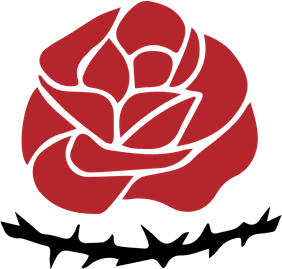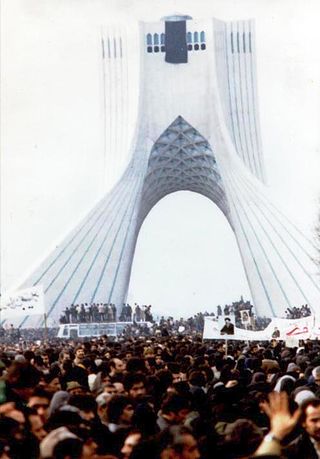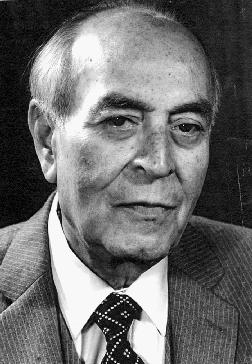
Ruhollah Musavi Khomeini was an Iranian Islamic revolutionary, politician and religious leader who served as the first Supreme Leader of Iran from 1979 until his death in 1989. He was the founder of the Islamic Republic of Iran and the main leader of the Iranian Revolution, which overthrew Mohammad Reza Pahlavi and ended the Iranian monarchy. Ideologically a Shia Islamist, Khomeini's religious and political ideas are known as Khomeinism.

The Iranian revolution, also known as the 1979 revolution, or the Islamic revolution of 1979 was a series of events that culminated in the overthrow of the Pahlavi dynasty in 1979. The revolution led to the replacement of the Imperial State of Iran by the present-day Islamic Republic of Iran, as the monarchical government of Mohammad Reza Pahlavi was superseded by the theocratic Ayatollah Ruhollah Khomeini, a religious cleric who had headed one of the rebel factions. The ousting of Pahlavi, the last Shah of Iran, formally marked the end of Iran's historical monarchy.

Grand Ayatollah Hussein-Ali Montazeri was an Iranian Shia Islamic theologian, Islamic democracy advocate, writer, and human rights activist. He was one of the leaders of the Iranian Revolution and one of the highest-ranking authorities in Shīʿite Islam. He was once the designated successor to the revolution's Supreme Leader, Ayatollah Khomeini; they had a falling-out in 1989 over government policies that Montazeri claimed infringed on people's freedom and denied them their rights, especially after the 1988 mass execution of political prisoners. Montazeri spent his later years in Qom and remained politically influential in Iran but was placed in house arrest in 1997 for questioning "the unaccountable rule exercised by the supreme leader", Ali Khamenei, who succeeded Khomeini. He was known as the most knowledgeable senior Islamic scholar in Iran, a grand marja of Shia Islam, and was said to be one of Khamenei's teachers.

Mohammed Sadeq Givi Khalkhali was an Iranian Shia cleric who is said to have "brought to his job as Chief Justice of the revolutionary courts a relish for summary execution" that earned him a reputation as Iran's "hanging judge". A farmer's son from Iranian Azeri origins was born in Givi, Azerbaijani SSR, in the Soviet Union. He is also reported to have born in Kivi, in the Khalkhal County, Iran. Khalkhali has been described as "a small, rotund man with a pointed beard, kindly smile, and a high-pitched giggle" by The Daily Telegraph.

The Tudeh Party of Iran is an Iranian communist party. Formed in 1941, with Soleiman Mirza Eskandari as its head, it had considerable influence in its early years and played an important role during Mohammad Mosaddegh's campaign to nationalize the Anglo-Persian Oil Company and his term as prime minister. From the Iran crisis of 1946 onwards, Tudeh became a pro-Soviet organization and remained prepared to carry out the dictates of the Kremlin, even if it meant sacrificing Iranian political independence and sovereignty. The crackdown that followed the 1953 coup against Mosaddegh is said to have "destroyed" the party, although a remnant persisted. The party still exists but has remained much weaker as a result of its banning in Iran and mass arrests by the Islamic Republic in 1982, as well as the executions of political prisoners in 1988. Tudeh identified itself as the historical offshoot of the Communist Party of Persia.

Sayyid Assadollah Ladjevardi was an Iranian conservative politician, prosecutor and warden. He was one of the officials responsible for the 1988 executions of Iranian political prisoners, and was assassinated by the People's Mujahedin of Iran on 23 August 1998.

The state of human rights in the Islamic Republic of Iran has been regarded as very poor. The United Nations General Assembly and the Human Rights Commission have condemned prior and ongoing abuses in Iran in published critiques and several resolutions. The government is criticized both for restrictions and punishments that follow the Islamic Republic's constitution and law, and for "extrajudicial" actions by state actors, such as the torture, rape, and killing of political prisoners, and the beatings and killings of dissidents and other civilians. Capital punishment in Iran remains a matter of international concern.

Starting on 19 July 1988 and continuing for approximately five months, a series of mass executions of Iranian political prisoners ordered by Ayatollah Khomeini and carried out by Iranian officials took place across Iran. Many prisoners were also tortured. The killings took place in at least 32 cities across the country. The killings were perpetrated without any legislative basis and trials were not concerned with establishing the guilt or innocence of defendants. Great care was taken to conceal the killings.
Fadayan-e Islam is a Shia fundamentalist group in Iran with a strong activist political and terrorist orientation. The group was founded in 1946, and registered as a political party in 1989. It was founded by a theology student, Navvab Safavi. Safavi sought to purify Islam in Iran by ridding it of 'corrupting individuals' by means of carefully planned assassinations of certain leading intellectual and political figures.
Islamic Revolutionary Court is a special system of courts in the Islamic Republic of Iran designed to try those suspected of crimes such as smuggling, blaspheming, inciting violence, insulting the Supreme Leader, and attempting to overthrow the Islamic government. The court started its work after the 1979 Iranian Revolution.

One of the most dramatic changes in government in Iran's history was seen with the 1979 Iranian Revolution where Shah Mohammad Reza Pahlavi was overthrown and replaced by Ayatollah Ruhollah Khomeini. The authoritarian monarchy was replaced by a long-lasting Shiite Islamic republic based on the principle of guardianship of Islamic jurists,, where Shiite jurists serve as head of state and in many powerful governmental roles. A pro-Western, pro-American foreign policy was exchanged for one of "neither east nor west", said to rest on the three "pillars" of mandatory veil (hijab) for women, and opposition to the United States and Israel. A rapidly modernizing capitalist economy was replaced by a populist and Islamic economy and culture.

From the Imperial Pahlavi dynasty, through the Islamic Revolution (1979), to the era of the Islamic Republic of Iran, government treatment of Iranian citizens' rights has been criticized by Iranians, international human rights activists, writers, and NGOs. While the monarchy under the rule of the shahs was widely attacked by most Western watchdog organizations for having an abysmal human rights record, the government of the Islamic Republic which succeeded it is considered still worse by many.

Many organizations, parties and guerrilla groups were involved in the Iranian revolution. Some were part of Ayatollah Khomeini's network and supported the theocratic Islamic Republic movement, while others did not and were suppressed when Khomeini took power. Some groups were created after the fall of the Pahlavi dynasty and still survive; others helped overthrow the Shah but no longer exist.
The National Democratic Front was a liberal political party founded during the Iranian Revolution of 1979 that overthrew Shah Mohammad Reza Pahlavi, and was banned shortly after by the Islamic government. It was founded by Hedayatollah Matin-Daftari, a grandson of celebrated Iranian nationalist Mohammad Mosaddegh and a "lawyer who had been active in human rights causes" before the downfall of the shah and the son of the fourth prime minister and the jurist Ahmad Matin-Daftari. Though it was short-lived, the party has been described as one of "the three major movements of the political center" in Iran during this period, and its ouster was one of the first indications that the Islamist revolutionaries in control of the Iranian Revolution would not tolerate liberal political forces.
The Muslim People's Republic Party (MPRP) or Islamic People's Republican Party was a short-lived party associated with Shia Islamic cleric Shariatmadari. It was founded in 1979 during the Iranian Revolution as a "moderate, more liberal counterweight" to the theocratic, Islamist Islamic Republican Party (IRP) of Ayatollah Ruhollah Khomeini, and disbanded in 1980.
Following the Iranian revolution, which overthrew the Shah of Iran, in February 1979, Iran was in a "revolutionary crisis mode" from this time until 1982 or 1983 when forces loyal to the revolution's leader, Ayatollah Ruhollah Khomeini, consolidated power. During this period, Iran's economy and the apparatus of government collapsed; its military and security forces were in disarray.
The Imperial State of Iran, the government of Iran during the Pahlavi dynasty, lasted from 1925 to 1979. During that time two monarchs — Reza Shah Pahlavi and his son Mohammad Reza Shah Pahlavi — employed secret police to stifle political dissent. The Pahlavi dynasty has sometimes been described as a "royal dictatorship", or "one-man rule". According to one history of the use of torture by the state in Iran, abuse of prisoners varied at times during the Pahlavi reign.
A constitutional referendum was held in Iran on 2 and 3 December 1979. The new Islamic constitution was approved by 99.5% of voters.

Iraj Eskandari was an Iranian communist politician. A Qajar prince, Eskandari received French education. He was the first general secretary of the Tudeh Party of Iran and a member of parliament. In the summer of 1946 he was named a Minister of Commerce and Industry in Qavam's coalition cabinet.

Asef Razmdideh was an Iranian communist politician and trade unionist.










